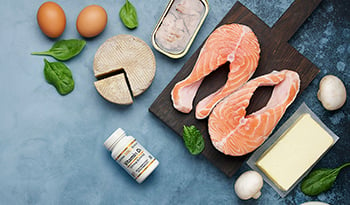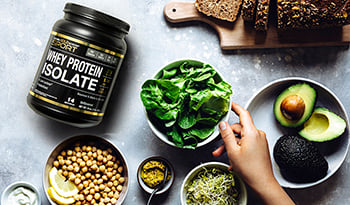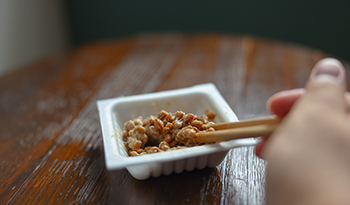Популярні дієти та харчові добавки: Що потрібно знати

Чи знали ви, що багато популярних дієт пов'язані з ризиком дефіциту поживних речовин? Якщо ви плануєте перейти на новий план харчування, спочатку прочитайте цю статтю. Ось огляд деяких найважливіших добавок, на які варто звернути увагу, якщо ви вирішили спробувати новий план харчування у 2020 році.
Кето
Кетогенна дієтаабо скорочено "кето", зараз надзвичайно популярна. Куди не глянь, скрізь є кулінарні книги, блоги та набори для приготування їжі. Кето, здається, скрізь. Але що це таке і чому воно таке популярне?
Спочатку розроблена для лікування дітей з епілепсією, кетогенна дієта нещодавно була прийнята як дієта для схуднення. Також припускають, що він допомагає контролювати діабет і запобігає хворобі Альцгеймера.
У цій дієті жири є основним джерелом калорій, за ними слідують помірна кількість білків і дуже мала кількість вуглеводів. Обмежуючи вуглеводи до 50 грамів або менше на день, прихильники кето-дієти, як правило, вилучають з раціону весь хліб, зернові та крупи, і навіть більшість фруктів і крохмалемістких овочів. Ідея полягає в тому, що в той час як людський організм зазвичай спалює вуглеводи для отримання енергії, кето-дієта обмежує вуглеводи настільки, що у вашого організму не залишається іншого вибору, окрім як перейти на спалювання жиру для отримання палива.
Процес спалювання жиру замість глюкози як палива називається кетозом, звідси і назва дієти. Перехід до кетозу зазвичай триває від тижня до десяти днів і може спричинити деякі неприємні побічні ефекти, які іноді називають "кето-грипом", включаючи головний біль, втому, нудоту, затуманення свідомості та труднощі зі сном.
Хоча спалювання жиру на паливо звучить як чудовий спосіб схуднення, його може бути важко підтримувати, тому більшість людей не дотримуються справжньої кетогенної дієти протягом тривалого часу. Також не існує довгострокових досліджень, які б довели безпеку та ефективність. Дотримуватися суворої кетогенної дієти складно, і найкраще це робити під керівництвом і щотижневим контролем дієтолога.
Через обмеженість кето-дієти, вона може наражати вас на ризик дефіциту мікроелементів, зокрема селену, магній, фосфор, залізо, кальцій та вітаміни D, B і C. Хороший спосіб переконатися, що ви усуваєте всі недоліки, уникаючи при цьому додавання крохмалю або підсолоджувачів, - шукати цільові кето-полівітаміни . Ви також можете додати пробіотики та клітковину через обмежену кількість продуктів з високим вмістом клітковини, таких як фрукти, бобові та цільні зерна, в раціоні.
Кетогенна дієта не рекомендується людям із захворюваннями підшлункової залози, печінки, щитовидної залози, розладами харчової поведінки або наявністю таких розладів в анамнезі, вагітним жінкам, а також людям із захворюваннями жовчного міхура або тим, кому видалили жовчний міхур. Як зазначалося раніше, робота з дієтологом для цього типу дієти настійно рекомендується. Будь ласка, проконсультуйтеся з лікарем, перш ніж починати будь-яку обмежувальну дієту.
Веган.
Веганська дієта користується все більшою популярністю частково завдяки знаменитостям і документальним фільмам. Хоча веганська дієта сама по собі не є примхою, деякі люди переходять на неї з примхи, не маючи належного плану, і можуть швидко зіткнутися з проблемами з харчуванням.
Веганство означає відмову від м'яса, риби, птиці, молочних продуктів і яєць та вживання широкого спектру фруктів, овочів, цільних зернових, горіхів, насіння, та бобових.
Дехто обирає веганську дієту з моральних міркувань, посилаючись на ставлення до сільськогосподарських тварин або вплив м'ясної та молочної промисловості на навколишнє середовище. Інші стають веганами, щоб схуднути, зменшити ризик хронічних захворювань, контролювати діабет 2 типу або покращити здоров'я серця.
Незалежно від того, чи пробуєте ви веганську дієту з етичних міркувань, чи заради незліченних переваг для здоров'я, важливо добре спланувати харчування, щоб переконатися, що ви вживаєте широкий спектр цільних продуктів. Просто відмовитися від продуктів тваринного походження недостатньо, щоб скористатися перевагами веганства.
Ось кілька поживних речовин, на які варто звернути особливу увагу:
Вітамін B12: Оскільки вітамін B12 міститься лише в продуктах тваринного походження, кожному вегану необхідно приймати його у вигляді вітамінів або збагачених продуктів, таких як крупи, соєве молоко або харчові дріжджі.
Вітамін D: Хоча це правда, що люди можуть перетворювати сонячне світло на вітамін D, це відбувається не цілий рік. Веганські джерела вітаміну D включають гриби (особливо гриби, що піддаються впливу сонячного світла), вітамінізоване рослинне молоко, вітамінізований тофу, вітамінізований апельсиновий сік і добавки з вітаміном D.
Омега-3 жирні кислоти: При вилученні морепродуктів з раціону, омега-3 можна замінити споживанням меленого лляного насіння, насіння чіа, насіння конопель або волоських горіхів. Намагайтеся щодня включати в свій раціон різноманітні горіхи та насіння. Ви також можете приймати щоденну веганську добавку омега-3.
Залізо: Цільні зерна та боби багаті на залізо, але воно не так легко засвоюється організмом, як залізо з тваринних джерел, оскільки зв'язане сполуками, які називаються фітатами. Простий спосіб боротися з цим - вживати джерело вітаміну С одночасно з залізом. Вітамін С покращує засвоєння, розриваючи зв'язок між залізом і фітатом. Прикладом може бути поєднання нуту та броколі або додавання червоного болгарського перцю.
Інтервальне голодування
Періодичне голодування - це не стільки дієта, скільки модель харчування, що передбачає циклічне чергування блоків часу, коли ви їсте і коли постите (утримуєтесь від їжі). Деякі з переваг можуть включати покращення рівня цукру в крові, зниження та підтримання ваги, покращення когнітивних функцій, зменшення запалення та покращення здоров'я серця.
Коли ви чуєте про інтервальне голодування, ви можете помітити, що існує багато варіацій. Ось кілька найпоширеніших типів:
Поперемінне денне голодування: За цим планом ви постите через день. У дні посту можна пити воду, чорну каву або чайале не можна вживати їжу. У непісні дні можна їсти все, що заманеться.
Дієта 16/8: За цим планом ви обмежуєте споживання їжі одним восьмигодинним блоком на день, а решту 16 годин постите. Багато людей, які дотримуються цього плану, пропускають сніданок і їдять тільки обід і вечерю.
Голодування 5:2: За цим планом ви постите 2 дні на тиждень або їсте дуже малу кількість калорій (близько 500) протягом кожного з цих 2 днів, а решту 5 днів харчуєтесь як зазвичай.
Який би план ви не обрали (а вибрати є з чого), вам потрібно переконатися, що ви відштовхуєтеся від здорового базового рівня (без дефіциту поживних речовин). Ви також повинні переконатися, що їжа, яку ви споживаєте в періоди прийому їжі, достатньо насичена поживними речовинами, щоб задовольнити всі ваші потреби в поживних речовинах.
Інтервальне голодування не рекомендується людям з діабетом, вагітним жінкам або жінкам, які годують груддю, а також особам з розладами харчової поведінки в анамнезі. Тривале голодування не рекомендується жінкам, оскільки воно може порушити роботу певних гормонів. Якщо ви розглядаєте можливість посту, спочатку обговоріть це з лікарем, особливо якщо ви приймаєте будь-які ліки.
Коли сумніваєтеся, їжте цільні продукти
Багато популярних дієт пов'язані з ризиком дефіциту поживних речовин. Важливо знати про них, щоб можна було внести відповідні корективи. Для більшості людей вживання різноманітної цільної їжі та регулярні фізичні вправи - найкращий шлях до здоров'я на все життя. Якщо ви хочете спробувати більш сувору дієту, проконсультуйтеся з зареєстрованим дієтологом, який розробить план спеціально для вас і буде стежити за вашим харчуванням протягом усього процесу.
ВІДМОВА ВІД ВІДПОВІДАЛЬНОСТІ:Інформація, що міститься в Центрі здоров'я, не призначена для встановлення діагнозу...
















































































 Зміст
Зміст















